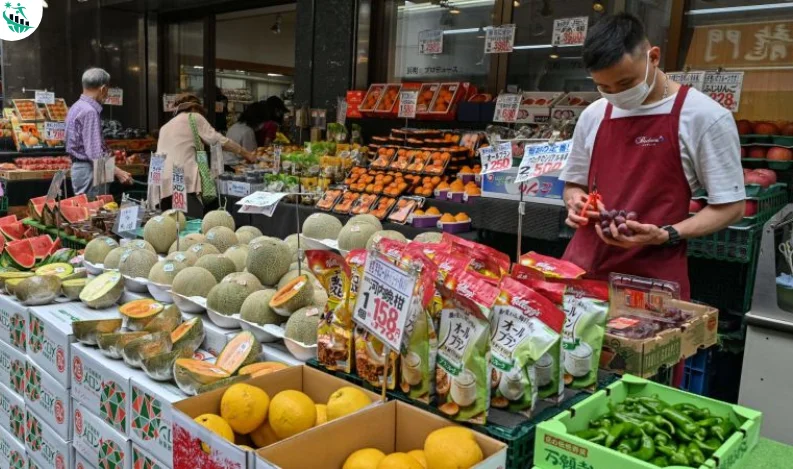
Rice Prices in Japan Soar Over 100% in May as Core Inflation Hits 2023 High
Japan is grappling with a dramatic spike in food costs, as rice prices more than doubled in May, marking a staggering 101.7% year-on-year increase, the highest in over 50 years. The surge has drawn intense scrutiny as it pushes core inflation to its highest level since January 2023, according to government data released Thursday.
The surge follows a 98.4% increase in April and a 92.1% rise in March, highlighting persistent upward pressure on Japan’s most essential staple food.
Core Inflation Rises to 3.7%
The core consumer price index (CPI), which excludes fresh food costs, rose 3.7% in May, surpassing economist expectations of 3.6% (Reuters) and April’s 3.5% print. This marks the 38th consecutive month that inflation has exceeded the Bank of Japan’s 2% target.
The “core-core” inflation rate, which further strips out energy costs and is closely monitored by the BoJ, climbed to 3.3% from 3% the previous month. Although headline inflation dipped slightly to 3.5% from April’s 3.6%, the continued rise in food-driven core inflation is drawing widespread policy and market attention.
Government Intervention and Food Cost Concerns
To contain the soaring prices, Japan’s government recently released emergency rice stockpiles in a bid to cool domestic markets. However, analysts say the effectiveness may depend on how quickly these measures are reflected in processed food pricing and restaurant menus.
"Rice accounts for nearly 50% of core inflation in Japan, making food costs a key determinant in the broader inflation narrative," said Marcella Chow, Global Market Strategist at J.P. Morgan Asset Management. She added that any price correction in rice could unlock consumer spending in other areas of the economy.
Economic Growth Stalls, But BoJ Holds Steady
Despite rising inflation, the Bank of Japan (BoJ) maintained its benchmark interest rate at 0.5% in its most recent monetary policy meeting. Governor Kazuo Ueda told parliament last week that rate hikes would only proceed once there is more certainty that inflation will stabilize around the 2% level.
However, the bank acknowledged in its latest statement that wage growth is being increasingly passed on to consumer prices, potentially sustaining inflation in the short term.
Meanwhile, Japan’s GDP contracted 0.2% in Q1 2025, driven by a decline in exports, marking the first quarterly economic contraction in a year. This economic softness may complicate future rate decisions, particularly if inflation proves persistent despite weaker output.
Outlook: Will Inflation Wane?
Economists remain divided on whether this inflationary trend will sustain. Kei Okamura, portfolio manager at Neuberger Berman, believes food-driven price pressures may ease in coming months, especially as supply chains normalize and emergency stockpiles enter the market.
"However, we are also watching global energy markets closely, as geopolitical tensions in the Middle East could fuel new inflationary pressures," he noted on CNBC’s Squawk Box Asia.
The BoJ forecasts that underlying consumer price inflation will eventually cool, citing slower economic momentum as a restraining force.



Recent Comments:
No comments yet.